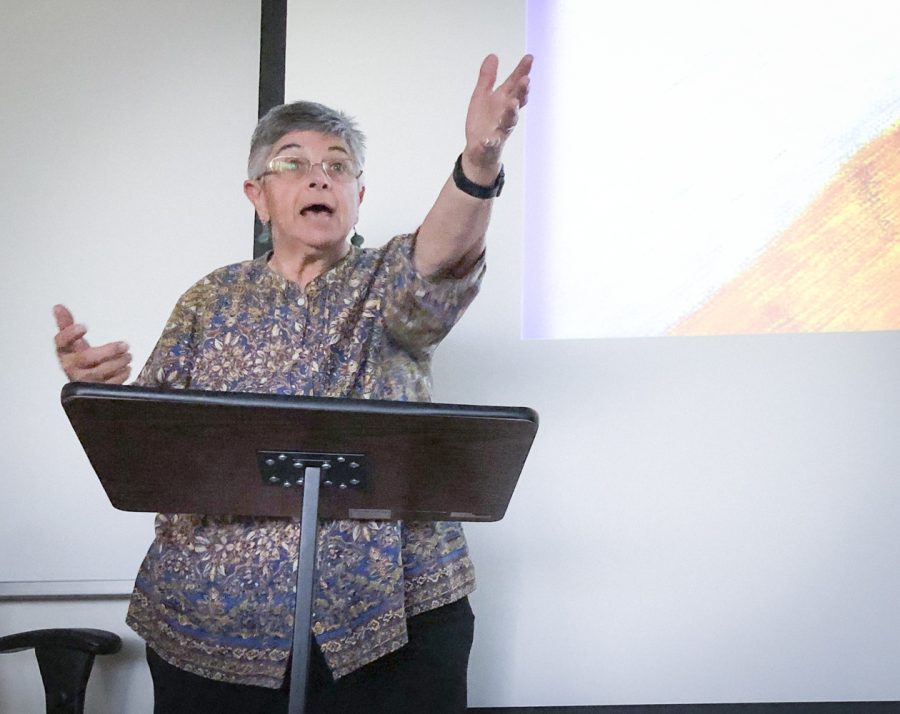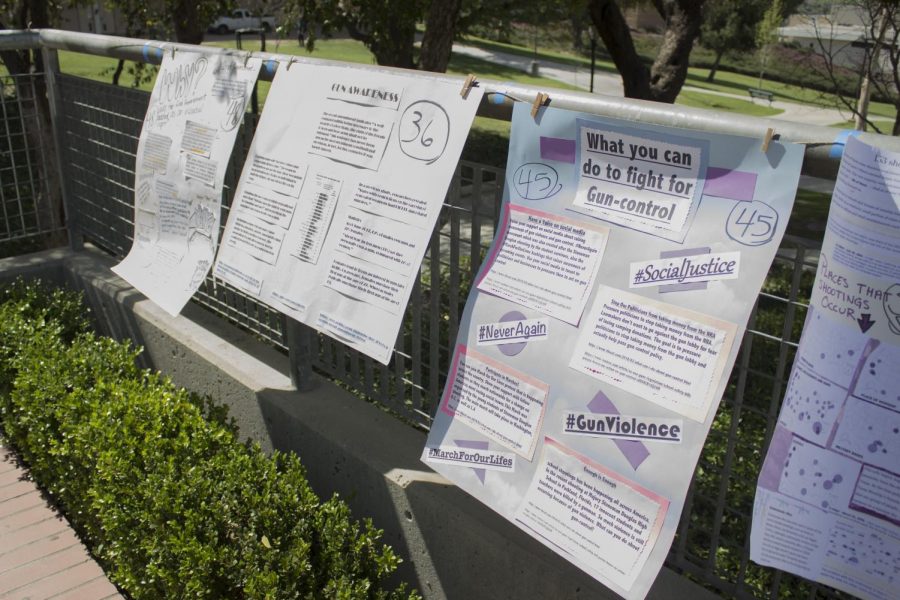Six international Moorpark College students shared their struggles, fears, and dreams about coming to the United States during a question and answer session on Tuesday, April 10, for the college’s 22nd annual Multicultural Day.
Maureen Rauchfuss, Moorpark College’s matriculation specialist and international program coordinator, led the discussion. She said the college enrolls more than 120 international students with full-time, F-1 Student Visas.
“International students don’t get a lot of chances to stay in the U.S. after graduation,” she said. “They can win the immigration lottery, marry a U.S. citizen, or get sponsored by a company. But they cannot work during school because of visa restrictions. It’s tough for them.”
Her international student panel included Komiljon Aliev, 19, the first Moorpark College student from Tajikistan; Phyllia Nhlangwini, 22, from South Africa; John Fernando, 29, from the Philippines; Sunny Oh, 19, from South Korea; Andrey Dementev, 20, from Russia; and Ruchikaa Kanar, 18, from India.
Kanar said the extreme academic pressure she felt while in India decreased significantly when she came to the U.S.
“Here, you can get extra credit to boost your grade,” Kanar said. “In India, it’s a test and nothing else. You have to be the best or you’re nothing.”
Nhlangwini, who studied in a South African university for two years before attending Moorpark College, took extra classes in high school to prepare herself for academic success.
“Whether you pass or not, it’s up to you,” Nhlangwini said.
Though she has grown accustomed to studying in America, she said she is still adapting to its social atmosphere.
“When you make friends with someone in South Africa, they almost become your family. I don’t make many friends here because of that,” Nhlangwini said. “If you want to be my friend, be my family.”
Fernando also took some time socially adjusting to U.S. mores. He said that people in the Philippines never think twice before giving out their telephone number, but here, people often act reserved and defensive when asked for their digits.
He said months passed before he better understood social slang.
“Someone said, ‘See you later,’ and after an hour, I was waiting for them,” Fernando said. “It took me a while to notice that – like okay – that’s how it goes.”
In the future, all six students wish to continue studying in the U.S.
Dementev plans on becoming a frequent flyer.
“Maybe I’ll be a business person and go back and forth,” he said. “I’ve heard that some people in America have never been out of state. I think, wow, I’ve seen all of Europe and Asia.”





